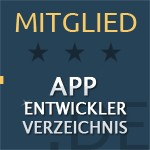
Insight

Insight

Insight
Freelancer work at a fixed price: Flexibility and planning certainty for startups


Julian Giesen
·
·
Monday, September 30, 2024


Julian Giesen
For many startups, collaboration with freelancers is a central part of their business strategy. However, the billing method plays a crucial role. While hourly or daily rates may seem flexible, they can bring unforeseen costs and planning uncertainties, especially for young companies. This is where the monthly fixed-price model comes into play, which has established itself as an attractive alternative.
The fixed-price model not only offers planning security but also creates a stable foundation for long-term collaboration with freelancers. Startups can calculate better and use their budgets more efficiently. Particularly in the early stages, where financial stability and transparency are of utmost importance, this model can provide the necessary security.
Another advantage is the flexibility that benefits both freelancers and businesses alike. While freelancers can expect fixed incomes, startups benefit from clear agreements and a predictable cost framework that allows room for creative and innovative projects—without constantly having to think about finances.
The monthly fixed-price model is therefore becoming increasingly popular, as it fulfills both the demands for flexibility and security. It provides the ideal framework for a trusting and sustainable collaboration, which can be critical for startups.
The Monthly Fixed-Price Model: Flexibility and Cost Certainty
The monthly fixed-price model offers both startups and freelancers a unique combination of flexibility and cost certainty. It is based on the premise that freelancers provide a clearly defined amount of work or specific services for a fixed monthly fee. This allows startups to plan their projects precisely without constantly thinking about rising or fluctuating costs.
For startups, this model is particularly attractive because it allows for precise budget control. Unlike hourly billing, where it is often difficult to calculate the final total expenses in advance, the total in a fixed-price model is already established. This means companies know from the beginning what costs to expect for the respective period. Unexpected financial burdens thus become a thing of the past.
Another important aspect is the flexibility that this model offers. Although a fixed amount is agreed upon, there remains sufficient scope to respond to changes or new requirements during the project. This is particularly advantageous in agile project structures that are widespread in the startup world. Here, the freelancer can continuously respond to new needs without having to negotiate additional costs each time.
In practice, the fixed-price model proves particularly valuable in recurring projects. For example, in developing an app that needs to be managed and further developed over several months. A fixed monthly budget allows the startup to continuously improve the app without renegotiating from project to project. At the same time, the freelancer gains planning security and a stable income base.
In summary, the monthly fixed-price model provides an optimal combination of clear budgeting, predictability, and flexibility. It is a model that fits particularly well with the dynamic demands of startups that rely on rapid growth and continuous adaptation.
Advantages of the Fixed-Price Model for Startups
The fixed-price model offers startups numerous advantages that not only focus on financial planning but also improve efficiency and strategic alignment. Here are the three main advantages that make this model particularly attractive for young companies:
Planning Security Through Defined Costs
Startups often operate with tight budgets and need to calculate precisely to use their financial resources optimally. The monthly fixed-price model ensures that costs are clearly defined, allowing startups to plan their expenses several months in advance. Unlike hourly or project-based billing models, where costs can develop unpredictably, there are no surprises with a fixed price. This gives founders the certainty that their project will remain within budget and no unforeseen expenses will arise.
Efficient Use of Resources
Billing at a fixed price forces both startups and freelancers to work efficiently. Since the budget is set, the focus is on getting the best out of the available time and resources. There are no additional costs for extended hours or revisions. This leads to freelancers working in a structured and goal-oriented manner, while startups receive a clearly defined service within a set timeframe. Additionally, unnecessary discussions about extra costs are avoided, simplifying communication between both parties.
Minimizing Financial Risk
Another essential feature of the fixed-price model is minimizing financial risk. Startups, which often operate with limited means, cannot afford for projects to run out of control due to unexpected additional costs or delays. A fixed price reduces this risk, as all conditions—from the services to be provided to the budget—are established in advance. If the project takes longer or is more complicated than planned, the agreed-upon monthly fee remains unchanged. This protects startups from financial bottlenecks and allows them to focus on growing their business.
Conclusion: Why the Fixed-Price Model is the Ideal Choice for Startups
The monthly fixed-price model offers startups a variety of advantages: cost savings, planning security, and flexibility. Through defined cost structures, startups can be assured that their projects will remain within budget, which is essential for long-term financial planning. At the same time, the risk of unexpected additional costs is minimized, making collaboration with freelancers particularly attractive for young companies.
The unique charm of the fixed-price model lies in its flexibility: startups can focus on the further development of their projects, while freelancers have a stable income source and can concentrate on clearly defined scopes of work. This reliability fosters a stronger bond between both parties and promotes long-term, partnership-oriented business relationships.
For startups, which often operate under high time and innovation pressure, the fixed-price model is an easy way to focus on their core tasks without constantly losing control over their financial resources. The combination of fixed costs, clear objectives, and flexible adaptability makes it an ideal model for young companies seeking stability and growth.
Overall, the fixed-price model is a win-win situation for both startups and freelancers. It lays the foundation for sustainable partnerships and facilitates young companies in advancing their visions without financial uncertainties.
All insights
All insights
“Flutter and the related logo are trademarks of Google LLC. We are not endorsed by or affiliated with Google LLC.”
“Flutter and the related logo are trademarks of Google LLC. We are not endorsed by or affiliated with Google LLC.”
Copyright ©2025. Julian Giesen. All rights reserved.
“Flutter and the related logo are trademarks of Google LLC. We are not endorsed by or affiliated with Google LLC.”






